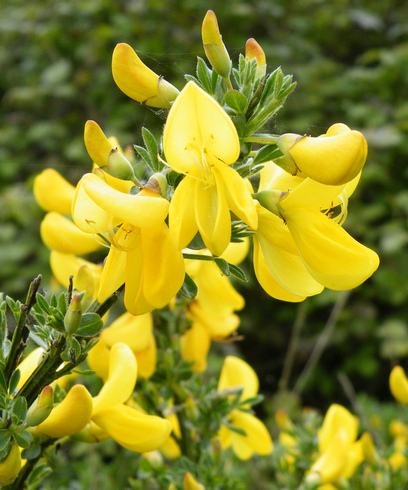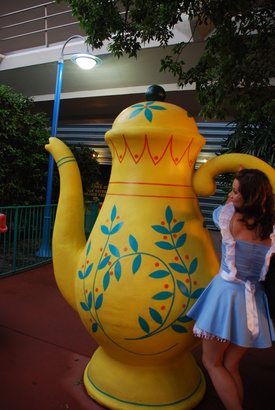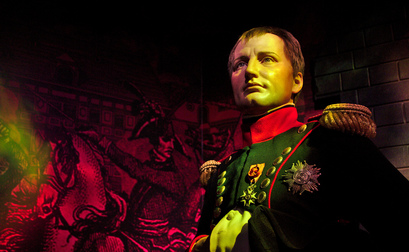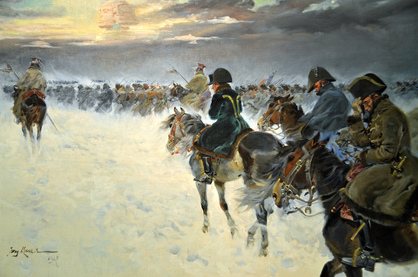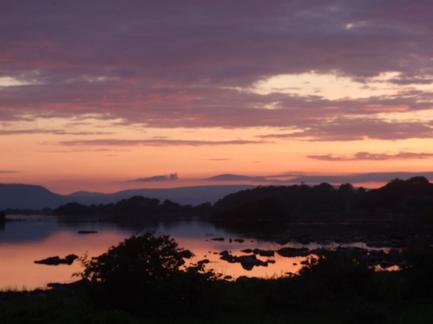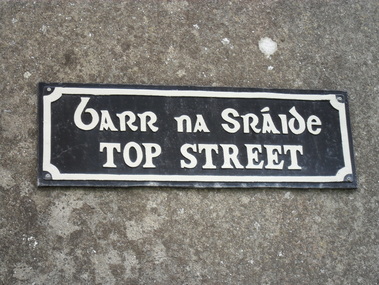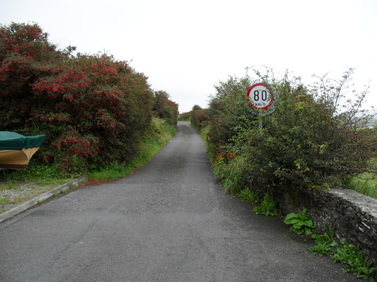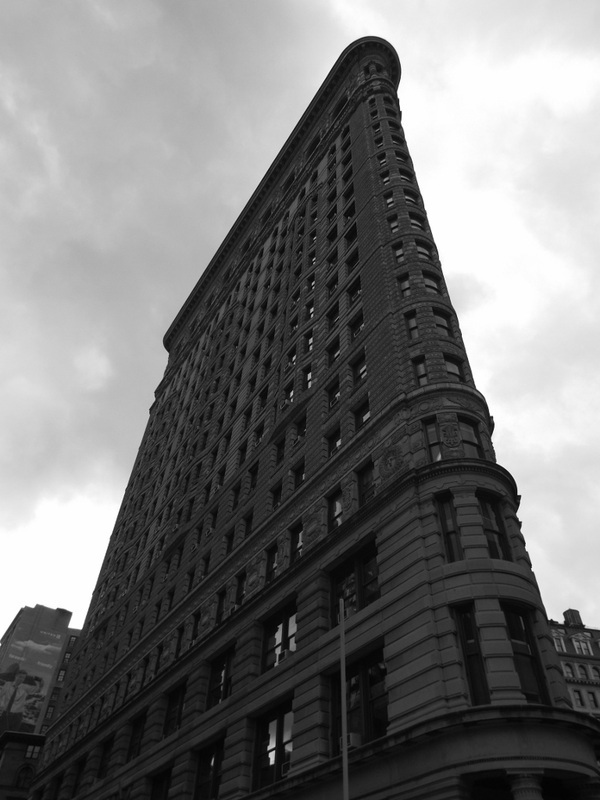Here are the words of a few songs that I sing...
1. The Bonny Broom
2. South Sligo Nocturne
3. My Bonny Blue-Eyed Lassie
4. An Buachaill Caol Dubh
5. As I Roved Out
6. When First I Came to Caledonia
7. The Bonny Bunch of Roses
8. My Bonny Light Horseman
9. Lament for Louis Darcy
10. The Mountains of Pomeroy
11. The Boys of Barr na Sráide
12. Skibbereen
13. Erin Grá Mo Chroí
2. South Sligo Nocturne
3. My Bonny Blue-Eyed Lassie
4. An Buachaill Caol Dubh
5. As I Roved Out
6. When First I Came to Caledonia
7. The Bonny Bunch of Roses
8. My Bonny Light Horseman
9. Lament for Louis Darcy
10. The Mountains of Pomeroy
11. The Boys of Barr na Sráide
12. Skibbereen
13. Erin Grá Mo Chroí
The Bonny BroomHow blithe was I each morn to see
my lass come o’er the hill, she tripped a burn and ran to me, I met her with good will. Oh the broom, the bonny, bonny broom, the broom o’er Cowdenknowes, fain would I be in my own country herding her father’s ewes. She neither herded ewes nor lambs, the flock near us lay, she gathered in the sheep at night and cheered me all the day. Oh the broom, the bonny, bonny broom, the broom o’er Cowdenknowes, fain would I be in my own country herding her father’s ewes. Hard fate that I should banished be, go wearily and mourn that I had lost the fairest lass that ever yet was born. Oh the broom, the bonny, bonny broom, the broom o’er Cowdenknowes, fain would I be in my own country herding her father’s ewes. Farewell ye Cowdenknowes, farewell, farewell all pleasures there. To wander by her side again is all I crave or care. Oh the broom, the bonny, bonny broom, the broom o’er Cowdenknowes, fain would I be in my own country herding her father’s ewes. |
Notes: This is a version of Child Ballad 217, The Broom of Cowdenknows. Francis James Child's collection, titled The English and Scottish Popular Ballads, gives several variants of The Broom of Cowdenknows, some of which contain lines which clearly relate to parts of the song which I call The Bonny Broom. The version given here is as I sing it. This is track 6 on my CD, Hollow Lands and Hilly Lands (2012). In the song, 'ewes' is pronounced 'yows' as is common in Scotland, and rhymes with Cowdenknowes (pronounced Cow-den-nows). Broom is a shrubby plant with yellow flowers which is native to the Scottish Highlands. |
South Sligo NocturneThe lyrics of this song can be seen at Thom Moore's website by clicking here (under the title 'The Mayfly and the Stone). Due to various versions of this song being in existence (see notes opposite), these words are very slightly different to those on my recording, but there is no mistaking that Thom has written yet another fine song!
|
Notes: This song by Thom Moore was originally written about Drumshanbo and Loch Allen, and titled Drumshanbo On Its Own. Thom later re-wrote the song to feature Loch Arrow instead, and called it South Sligo Nocturne. I found the (very similar) new words somewhere and started singing them to the tune of Drumshanbo On Its Own, having heard Thom sing one of the versions (I can't remember which) at a live event where he was playing with Rick Epping. Thom himself recently recorded the Loch Arrow version of the song under another title, The Mayfly and the Stone! This recording is on his fine, long-awaited and warmly-welcomed new album Seven Things Aloom (2013). South Sligo Nocturne is track 2 on my CD, Hollow Lands and Hilly Lands (2012). |
My Bonny Blue-eyed LassieHow could I live on the top of a mountain
with no money in my pocket or gold for the counting? I would let the money go, all for to gain her fancy and I would marry no-one but my bonny blue-eyed Nancy. She’s my bonny blue-eyed Nancy with an air so sweet and tender, her walk like swans on water and her waist so small and slender. Her golden hair in ringlets fair hangs over her snow-white shoulder and I’d ask her for to marry me and there’s no man could be bolder. And there’s some people say that she is very low in station, and there’s more people say that she’s the cause of my ruination, but let them all say what they will, to her I will prove constant still. Till the day that I die she’ll be my own lovely lady. And gently swim the swans o’er the deep waters of Eochaill and lightly sings the nightingale, so happy to behold her, and the winds do blow, and the moor-cocks crow, and the moon it shines so deeply, but deeper by far is my love for my young lady. And there’s some people say that she is very low in station, and there’s more people say that she’s the cause of my ruination, but let them all say what they will, to her I will prove constant still. Till the day that I die she’ll be my own lovely lady. |
Notes: I first heard this extraordinary love song being sung by John Lyons in a session in Lena's (now Shortt's) bar in Feakle, Co. Clare. Many fans of traditional singing will no doubt be familiar with John and his brother Tim Lyons, both fine singers and musicians, and both gentlemen as well. The song is also known occasionally as Top of the Mountain or My Bonny Blue-eyed Nancy. It is track 9 on my CD, Hollow Lands and Hilly Lands (2012). |
An Buachaill Caol DubhWhen I go to the market to make a purchase
and grasp the earnest money within my hand a dark slender boy still seeks and searches till he slips beside me, sedate and bland. It's not long after my senseless laughter will reach the rafter and I'm left prone, when I pay what's owing even though it's snowing, seven months without a shirt I am going, my money gone. An buachaill caol dubh is tall and slender, clever and learned, of comely mien, but he has left me, and in pain bereft me of all my fortune, sheep and kine. Were I to travel to France, no go Cuan Binn Eadair, or back across to Inis Mor, swift as a swallow, my track he would follow, until on the morrow I would find him there. And the fairy queen of Thomond met us while roaming near the grey rock, and she told the lad if he would me abandon, that she would grant him a hundred topers, to make him glad. The slim boy answered in tones of banter it was n'er his fancy to lose a friend, over hill and o'er hollow, that he would follow a soak so mellow, until the end. |
Notes: This is a poetic version of a song originally written in Irish a few hundred years ago. It seems clear that An Buachaill Caol Dubh (the dark slender boy) is a metaphor for drink/alcoholism, which haunts, follows and tempts the author, leaving him bereft of money, belongings, and contentment. It is an especially beautiful and poignant song, seeming to inhabit a world of its own, describing aspects of the Irish landscape within the story it tells and incorporating the legendary fairy queen of Thomond, who tries in vain to bargain with 'an buachaill caol dubh'. Thomond was one of the ancient kingdoms of Ireland, comprising Co. Clare and some of the surrounding counties of Limerick, Tipperary and Kerry. Cuan Binn Eadair is the Irish term for Howth Harbour, Co. Dublin. Inis Mor is one of the Aran Islands, off the Clare/Galway west coast. The song contains a few unusual or archaic words: mien = bearing or general appearance - 'of comely mien' kine = plural of cow, as an alternative to 'cows' toper = a heavy drinker or alcoholic soak = much like 'toper', a heavy drinker The 'grey rock', near which the author meets the fairy queen of Thomond, may possibly refer to the Burren in north Clare, which contains extensive and striking areas of grey limestone. This song is the final track on my Hollow Lands and Hilly Lands album. |
As I Roved OutAs I roved out on a bright May morning,
to view the meadows and flowers gay, who should I meet but my own true lover as she sat under yon willow tree. I took off my hat and I did salute her; I did salute her most graciously. When she turned around, the tears fell from her saying 'False young man, you have deluded me'. 'A diamond ring that I owned I gave you, a diamond ring to wear on your right hand.' 'But the vows you made love you went and broke them, and married the lassie that had the land.' 'If I married the lassie that had the land, my love, it's that I'll rue until the day I die. When misfortune frowns no man can shun it, I was blindfolded I will not deny.' Now when I go to my bed of slumber the thoughts of my true love run in my mind; when I turn around to embrace my darling instead of gold, it's brass I find. And I wish the queen would call home her armies from the West Indies, America and Spain, and every man to his wedded woman, in hope that you and I will meet again. |
Notes: This is one of the first traditional songs which I remember really standing out in my mind after I heard it at a session, and making me want to start singing traditional songs myself. As I recall, it was a session in O'Grady's pub in Coolaney (Co. Sligo) and the song was sung by a bearded Englishman called Jim who was visiting the area, perhaps on holiday. I must have been quite a small boy at the time. Maybe the main reason the song was so memorable is the lovely tune to which the words are sung. I later found a recording of Andy Irvine singing the song, and have heard several others singing it since. The title 'As I Roved Out' seems to be a common one for traditional songs, probably due to many first lines starting with these words. |
When first I came to CaledoniaWhen first I came to Caledonia
and I got loading at Number 3, and I got lodging with Donald Norman, he had a daughter could make good tea. Now there was me and my brother Charlie, two bigger shavers you never did see. We were spearing eels in the month of April, we were starving slaves out on Scattery. So I went to Norman’s to buy some brochan, a cake of soap and a pound of tea, but Norman said that I could not get them, till fish grew plenty on Scattery. So I took myself down to that big harbour and I only went for to see the spray, and I spied a lass from Boularderie over, she seemed to me like the queen of May. Now if I had pen from Pennsylvania, if I had paper of snowy white, if I had ink of a rosy morning, a true love letter to you I’d write. I’d set my foot on the deepest ocean, as far from land as once I might be. When sailing over the deepest water, a woman’s love would not trouble me. And I’d set my head to a cask of brandy, and it’s a dandy I do declare, for it’s when I’m drinking, I’m seldom thinking, how to gain that young lady fair. When first I came to Caledonia and I got loading at Number 3, and I got lodging with Donald Norman, he had a daughter could make good tea. |
Notes: This is currently one of my favourite songs. It is set in Nova Scotia, Canada, and tells the story of a man who has gone there to work in the Caledonian coal mine (which helps to explain the second line), and who falls in love with a girl from Boularderie, an island off Cape Breton. Scattery, mentioned a few times in the song, is another island in the area. 'Brochan', as I understand it, is a type of porridge made with oats. I learned this song from a version recorded by Martin Simpson. |
The Bonny Bunch of RosesBy the margin of the ocean,
one pleasant evening in the month of June, when all the feathered songsters their liquid notes did sweetly tune t'was there I spied a female and on her features great signs of woe, conversing with young Bonaparte concerning the bonny bunch of roses o. Then up spoke young Napoleon and he took his mother by the hand saying 'Mother dear, be patient until I'm ready to take command. Then I'll raise a mighty army and through tremendous dangers go, and I never will return again till I conquer the bonny bunch of roses o.' 'When first you met Napoleon you fell down on your bended knee, and asked your father's life of him; he granted it right manfully. Then he raised a mighty army and over the frozen Alps did go all for to conquer Moscow and return for the bonny bunch of roses o.' 'He took five hundred thousand men and kings likewise to bear his train. He was so well provided for that he could sweep the world for gain. But when he came to Moscow he was overpowered by the sleet and snow; with Moscow all a-blazing he lost the bonny bunch of roses o.' 'Oh son, be not so venturesome for England is the heart of oak, and Ireland, England, Scotland: their unity will n'er be broke. Remember your brave father, in St. Helena he lies low. Oh, beware if you follow after, beware the bonny bunch of roses o.' 'Oh mother adieu forever, for now I lean my youthful head. Had I lived I would be clever, oh but now I lean my mournful head. But when our bones lie mouldering and over me the willows grow, the name of young Napoleon will enshrine the bonny bunch of roses o.' |
Notes: The Bonny Bunch of Roses describes a conversation between 'Young Napoleon' and his mother, referring to the epic ventures of Emperor Napoleon Bonaparte of France. Young Napoleon is the son of the emperor and his mother is Napoleon's second wife, Marie Louise. Young Napoleon was declared Emperor Napoleon II of France when his father abdicated, but reigned for only a short time since the coalition which had forced Napoleon's abdication refused to recognise Napoleon II as his successor. In the song, he describes his ambition to follow in his father's footsteps and to gain victory in mighty battles, and in particular to conquer Britain. The phrase 'the bonny bunch of roses' seems to variously refer both to the British soldiers (with their red uniforms) and to Ireland, England and Scotland, all considered part of Britain at the time. His mother reminds him of the downfall of his father, who was exiled by the British on the remote Atlantic island of St. Helena, where he eventually died in 1821, and she warns young Napoleon against drawing plans against Britain: 'Oh, beware if you follow after, beware the bonny bunch of roses o.' As it turned out, young Napoleon died at the young age of 21, of tuberculosis, as mentioned in the final verse. I've heard this song sung by various singers, probably first by Sean Garvey. It hardly needs to be said that such a song exists in various versions, some with differences in words and details of the story. Here is a version with somewhat different lyrics but which still tells essentially the same story. Here is a recording of Joe Heaney introducing and singing the song. And here is a recording of me singing it! |
My Bonny Light HorsemanWhen Bony commanded his armies to stand
he levelled his cannon right over the land, he levelled his cannon, his victory to gain and slew my light horseman on the way coming home. Broken-hearted I'll wander, broken-hearted I'll remain, since my bonny light horseman in the war was slain. Oh if were a small bird and had wings to fly, I would fly across the salt sea to where my love does lie and with my fond wings I'd beat over his grave and kiss the pale lips that lie cold in the clay. Broken-hearted I'll wander, broken-hearted I'll remain, since my bonny light horseman in the war was slain. The dove, she laments for her mate as she flies 'Oh where, tell me where, is my darling?' she cries, and where in this wide world is there one to compare with my bonny light horseman who was slain in the war? Broken-hearted I'll wander, broken-hearted I'll remain, since my bonny light horseman in the war was slain. When Bony commanded his armies to stand he levelled his cannon right over the land, he levelled his cannon, his victory to gain and slew my light horseman on the way coming home. Broken-hearted I'll wander, broken-hearted I'll remain, since my bonny light horseman in the war was slain. |
Notes: Another song referring to Napoleon ('Bony'), this story seemingly told by the lover of a soldier who was killed fighting against the French army. My first memory of this song is hearing John Doyle singing it at a session. I used to meet John and his brother Brian occasionally at sessions in Coolaney and, like their father Sean, they both have good songs. I was recently reminded of the song when I heard Frank Carter from Sligo singing a nice version of it. Of course there are different versions as is often the case with old songs. |
Lament for Louis DarcyWeep not for the noble, the brave or kind-hearted,
that fine-minded jewel who’s now mouldering in clay, a terror to England and her hired assassins, Commandant Louis Darcy from beside Clydagh Bay. A young man of honour with business in Dublin, returning to Clydagh in no way dismayed, his aim and ambition was to raise a battalion and to fight like a hero in the North Galway brigade. Success met his efforts but oh, the sad story, at Oranmore station he was captured one day, conveyed by the tans, his official betrayer when trying to escape was shot down on the way. Oh little he knew when he left his kind mother, little he knew when he bade her adieu that an angel of death lay awaiting his coming, alone and unarmed the day he would die. Oh brave men have fought and brave men have perished, brave men have fought for the cause long ago, but none was as brave as young Louis Darcy, he fought like a hero in the North Galway brigade. Oh farewell brave commander, we ne’er shall forget you, that bright light of freedom adorns your name. In spirit you’re with us to comfort and console us And to shine like a beacon around Clydagh Bay. |
Notes: The only person I've ever heard singing this song is John Folan from Castlegar, Co. Galway. The words opposite are only as accurate as my memory permits from having heard John singing it on various occasions. Louis Darcy was captured in Oranmore by the Black and Tans in 1921 and subsequently shot. |
The Mountains of PomeroyThe dawn was breaking bright and fair,
the lark sang in the sky, when the maid she bound her golden hair with a blithe glance in her eye. For who beyond the gay green wood was awaiting her with joy? Oh, who but her gallant Renardine on the mountains of Pomeroy. An outlawed man in a land forlorn, he scorned to turn and fly but he kept the cause of freedom safe on the mountains of Pomeroy. Full often in the dawning hour, full oft in twilight brown, he met the maid in the woodland bower where the stream comes falling down, for they were faithful in a love no war could e'er destroy. No tyrants law touched Renardine on the Mountains of Pomeroy. "Dear love," she said, "I'm sore afraid, for the foe-man's force and you, they've tracked you in the lowland plain, and all the valley through. My kinsmen frown when you are named, your life they would destroy, Beware, they say, of Renardine on the Mountains of Pomeroy." "Fear not, fear not, sweetheart," he cried "Fear not the foe for me, no chain shall fall, whate'er betide on the arm that would be free. Oh, leave your cruel kin and come when the lark is in the sky and it's with my gun I’ll guard you on the mountains of Pomeroy." The morning come, she rose and fled from her cruel kin and home and bright the wood and rosy red and the tumbling torrent's foam. But the mist came down and the tempest roared and it all around destroy, and a pale drowned bride met Renardine on the mountains of Pomeroy. An outlawed man in a land forlorn, he scorned to turn and fly but he kept the cause of freedom safe on the Mountains of Pomeroy. |
Notes: A tragic love song, written I believe by a Dr. George Sigerson, set in the hills near Pomeroy, Co. Tyrone. The tune is often played separately as a march, though the song is generally sung slowly. |
The Boys of Barr na SráideThe town it climbs the mountain,
and looks out on the sea. At sleeping time or waking time, it's there I'd like to be; to walk again those kindly streets, the place I grew a man, with the boys of Barr na Sráide who hunted for the wren. With cudgels stout we roamed about to hunt the dreoilín. We searched for birds in every furze from Litir to Dooneen, we danced for joy beneath the sky, life held no print or plan, and we boys in Barr na Sráide went hunting for the wren. And when the hills were bleeding, and the rifles were aflame, to the rebel homes of Kerry the Saxon stranger came, but the boys who dared the Auxies and who fought the Black and Tans were once boys in Barr na Sráide who hunted for the wren. And here's a health to them tonight, those lads who laughed with me by the groves of Carhan River or the slopes of Bi na Tí - John Dalaigh and Batt Andy and the Sheehans, Con and Dan, and the boys of Barr na Sráide who hunted for the wren. Ah but now they toil on foreign soil where they have gone their way, deep in the heart of London town or over on Broadway, and I am left to sing their deeds and praise them while I can, those boys of Barr na Sráide who hunted for the wren. And when the wheel of life runs down and peace comes over me, just take me back to that old town between the hills and sea. I'll take my sleep in those green fields, the place my life began with the boys of Barr na Sráide who hunted for the wren. |
Notes: This is justifiably one of the most respected and appreciated of Irish traditional songs. Barr na Sráide is a street in Caherciveen, Co. Kerry. I learned the song a long time ago from Seán Garvey. A few years ago, I was in Caherciveen and decided to have a look at famous Barr na Sráide. A lady in a shop directed me, and I found that, as in the song, Barr na Sráide does indeed climb the hill behind the town and overlooks the sea. Here are some photos I took that day. There was a tradition in Ireland of hunting a wren (pronounced 'ran' in the song) on December 26. The 'Wren Boys' then went about the locality with the captured bird, playing music, singing or dancing, and collecting any donations the people made. The custom of wren boys doing the rounds on December 26 is still carried out sometimes, and any money collected might be given to a charity in some cases, though thankfully I have never seen a captured wren used as in the past. The word 'dreoilín' in the second verse of the song is the Irish word for wren.
The third verse refers to the Auxies and the Black and Tans. Auxies were members of the Auxiliary Division of the Royal Irish Constabulary, former British soldiers who were recruited during the War of Independence in Ireland, their main role being opposing the Irish Republican Army of the time and launching revenge attacks, often on civilians. As with the Black and Tans, their presence in Ireland was sorely resented by many. This song was written by Sigerson Clifford. An excellent version can be found on Seán Garvey's CD, Ón dTalamh Amach. |
SkibbereenOh father dear, I oft-times hear
you speak of Erin's Isle; her lofty scenes and valleys green, her mountains rude and wild. They say it is a lovely land wherein a prince might dwell, so why did you abandon it, the reason to me tell? Oh son I loved my native land with energy and pride, till the blight came over all my crops, my sheep and cattle died. My rent and taxes were too high, I could not them redeem and that's the cruel reason why I left old Skibbereen. It's well I do remember that bleak December day when the landlord and the sheriff came to drive us all away. They set my roof on fire with their cursed Saxon spleen, and that's another reason why I left old Skibbereen. Your mother too, God rest her soul, fell on that snowy ground. She fainted in her anguish at the desolation 'round. She never rose, but passed away, from life to immortal dream and found a quiet grave, my boy, near dear old Skibbereen. And you were only two years old, and feeble was your frame; but I could not leave you with my friends, you bore your father's name. I wrapped you in my cóta mór, in the dead of night, unseen, and heaved a sigh and bid goodbye to dear old Skibbereen. But father dear, the day will come when in answer to the call, all Irishmen with a feeling stern will rally, one and all. I'll be the man to lead the van beneath that flag of green, and loud and high we'll raise a cry: 'Revenge for Skibbereen'. |
Notes: Skibbereen mentions some of the horrors of the famine which occurred in Ireland from 1845 to about 1852, and the feelings of some of those who emigrated at that time. The famine was caused by a long history of oppressive government which resulted in millions of people living in extreme poverty on tiny patches of land, for which they were expected to pay rent to landlords, many of whom resided in England. Much of this land, which originally had been in Irish ownership, had been seized two centuries earlier and allocated to various settlers from Britain. The severe poverty and lack of resources resulted in many people surviving mainly on potatoes, since these produce a higher yield per area than many other crops. However, during the famine years, the potato harvest dropped sharply due to the spread of potato blight disease. Large quantities of grain crops were still being grown in the country, but these were exported throughout the famine years for the profit of the landlords. Some versions of the song also include this verse: It's well I do remember the year of forty-eight, when we rose with Erin's boys to fight against our fate. I was hunted through the mountains, as a traitor to the queen, and that's another reason why I left old Skibbereen. 'Van' in the last verse means the leading division of an army. Here is a recording of me singing Skibbereen. |
Erin Grá Mo ChroíAt the setting of the sun,
when my long days work was done, I rambled by the sea-shore for a walk, and I being all alone, I sat down upon a stone for to gaze upon the scenes of New York. Oh and Erin Grá Mo Chroí, you're the dear old land to me, you're the fairest that my eyes have ever seen. You're the land St. Patrick blessed, you're the bright star of the west, you're my own dear native land so far away. With the fire burning bright, on a cold dark winters night, and the snowflakes falling gently to the ground, when St. Patrick's Day has come, my thoughts will carry me home to my own dear native land so far away. Oh and Erin Grá Mo Chroí, you're the dear old land to me, you're the fairest that my eyes have ever seen. You're the land St. Patrick blessed, you're the bright star of the west, you're my own dear native land so far away. On the day that I did part, it almost broke my heart, would I ever see my dear ones any more? Not until my bones are laid in a cold and silent grave, in my own dear native land so far away. Oh and Erin Grá Mo Chroí, you're the dear old land to me, you're the fairest that my eyes have ever seen, and if ever I go home, it's from you I never will roam, you're my own dear native land so far away. Oh and Erin Grá Mo Chroí, you're the dear old land to me, you're the fairest that my eyes have ever seen. You're the land St. Patrick blessed, you're the bright star of the west, you're my own dear native land so far away. |
Notes: Of course, not all emigrants from Ireland who travelled to places like New York or Boston regretted the move; many settled very well and enjoyed good lives in their new homes. Many still do. If a lot of traditional songs give the impression of always missing Ireland, and hoping to return, it is probably because some of those who left were rather unwilling emigrants, and in many cases left situations of serious poverty and deprivation in the hope of finding employment and happiness in the new world. Even if things worked out well, they might have regretted not having much of a choice in the matter. Erin Grá Mo Chroí is Irish for 'Ireland, love of my heart'. As usual, there are different versions of the song, some with somewhat different words, but I like the version given here. |
©2013-2017. All Rights Reserved.
